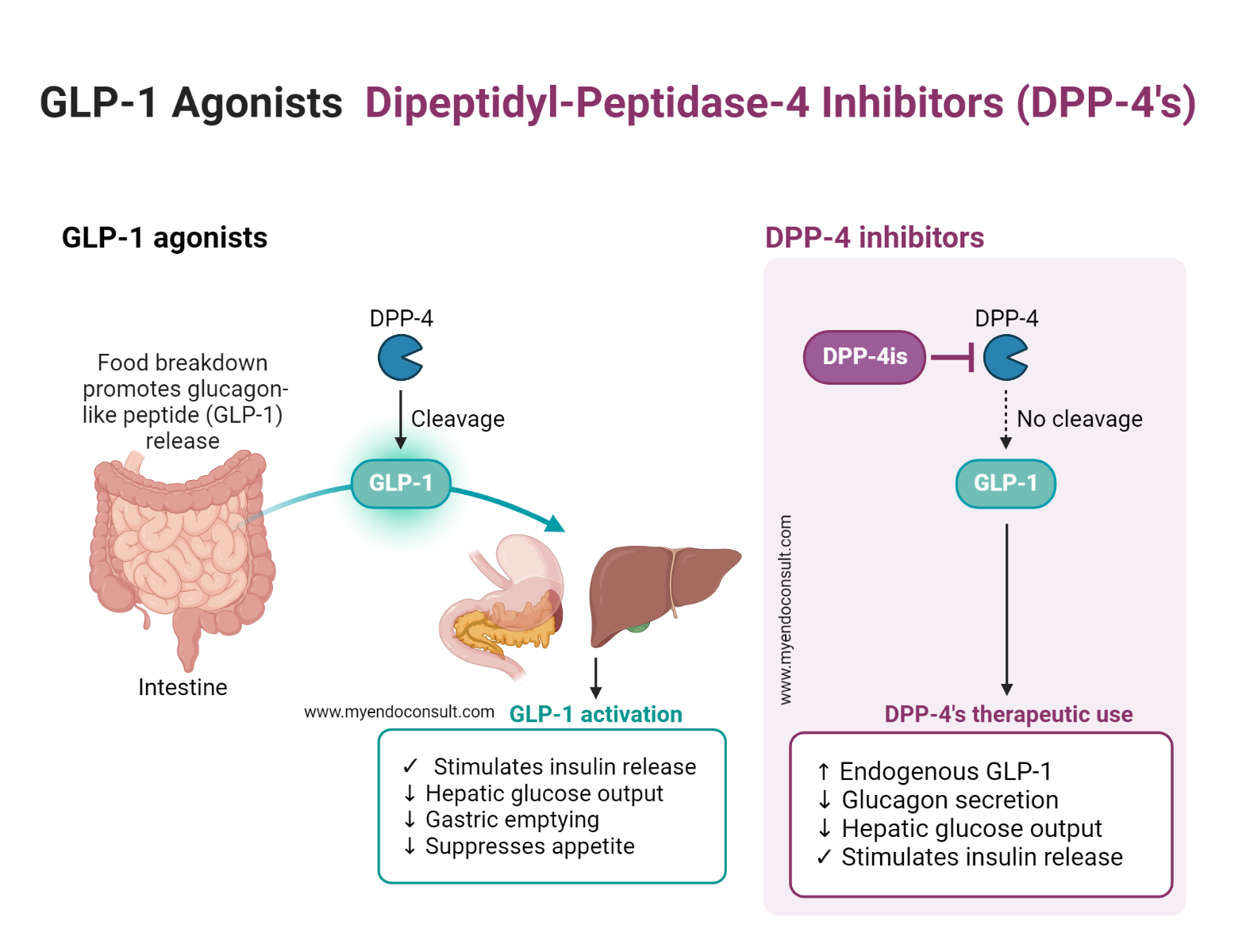Incretins are gut-derived factors that enhance insulin release by pancreatic beta cells. These factors are produced by selective posttranslational modification of proglucagon, a 160-residue peptide expressed by the α-cells of the pancreas, K and L cells of the small intestine.
The incretin effect is described as enhanced insulin secretion in response to an oral glucose load (∼6–1.7-fold) compared with intravenous glucose administration. The incretin effect is mainly attributed to the action of two hormones gut hormones, including glucose-dependent insulinotropic peptide (GIP) and glucagon-like peptide 1 (GLP-1). K cells are responsible for the production of GIP and the L cells for GLP-1.
What do incretins do?
| GLP-1 | • GLP-1 is released in the gut in proportion to ingested calories. • Reduction in gastric emptying and suppression of gastric acid secretion • Anorexegenic effects |
| Glucose-dependent insulinotropic polypeptide (GIP) | • Along with GLP-1, GIP acts as an incretin to potentiate glucose-stimulated insulin release • direct anabolic effects on adipose tissue, including o stimulation of glucose import o fatty acid synthesis o Lipogenesis o inhibition of lipolysis |
What are incretin mimetics?
Incretin mimetics mimic the effect of the gut hormone GLP-1 or GIP or both, with favorable metabolic effects in type 2 diabetes mellitus. These agents promotes a myriad of effects…
- Suppresses appetite
- Inhibits glucose production in the liver
- Slows gastric emptying
- Stimulates insulin release
- Glucagon-like peptide 1 is an incretin produced from the PROGLUCAGON gene in L cells of the small intestine and is secreted in response to exposure to gastrointestinal nutrients. It is worth noting that GLP-1 is usually deficient in patients with type 2 diabetes mellitus.
- Dipeptidyl peptidase 4 (DPP-4) inhibitors inhibit DPP-4, which is a ubiquitous enzyme expressed on the surface of most cell types that deactivates GLP-1; therefore, its inhibition could potentially affect glucose regulation through multiple effects. DPP4 inhibitors have a very minimal effect on endogenous incretins (GLP-1, GIP)
- Dual GLP-1/GIP agonists (Tirzepatide) possess the properties of both incretins and are associated with more significant weight loss than GLP-1 agonist monotherapy.
Mechanism of action of incretins

Comparison of incretin drugs
| DPP-4 inhibitors | GLP-1 agonist therapy |
| • Increases endogenous GLP-1 • Stimulate glucose-dependent insulin secretion from B cells • Lower glucagon secretion • Overall effect -- lowers hepatic glucose output | Exert all the effects of DPP-4 agents • Slow gastric emptying • Decrease food intake |
Selected References
- Nauck MA, Meier JJ. Incretin hormones: Their role in health and disease. Diabetes Obes Metab. 2018 Feb;20 Suppl 1:5-21.
- Drucker DJ. The biology of incretin hormones. Cell Metab. 2006 Mar;3(3):153-65.
Kindly Let Us Know If This Was helpful? Thank You!


